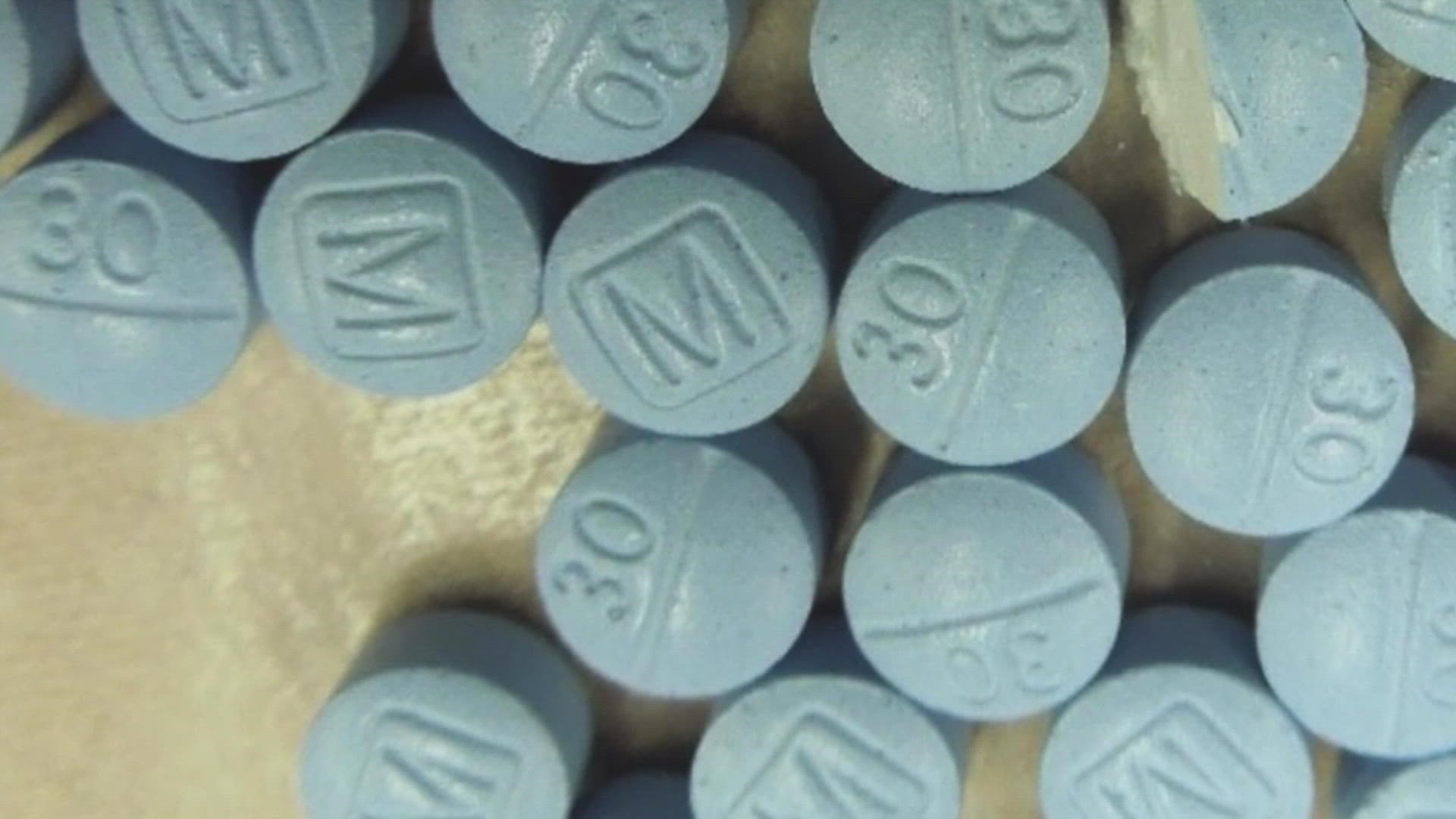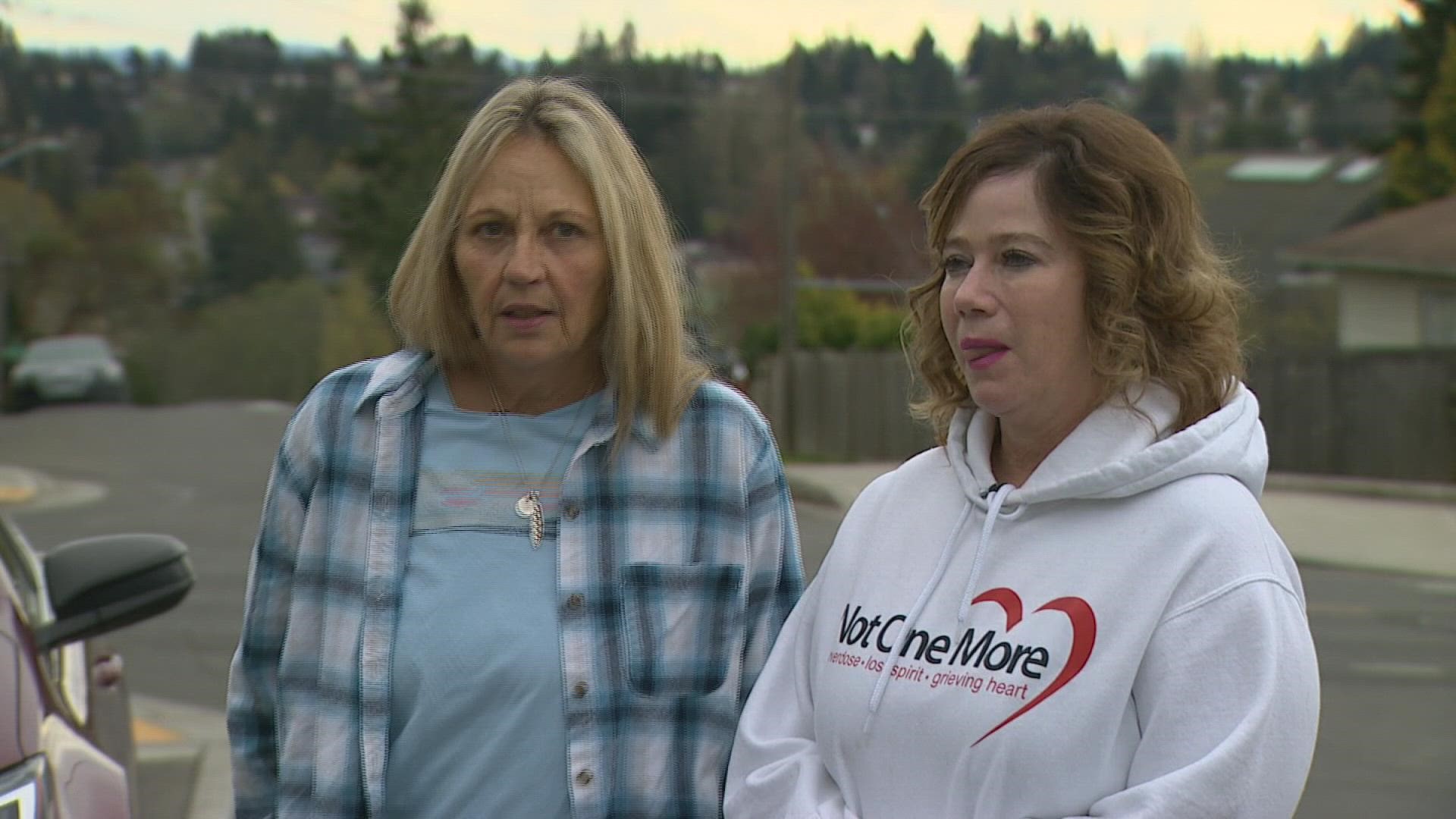SEATTLE — Now a licensed clinician and recovery advocate, Marcos Sauri embarked on his own recovery journey years ago. On the other side of addiction, Sauri is driven to help everyone he can find hope for their own futures.
"I was a heroin addict, and at a young age I knew I had a problem and I had an opportunity to be given a second chance," Sauri said. "Not by my choice, but I ended up at a place where they gave me the help and I never left. I volunteered, they sent me to school, it wasn't my choice that I wanted to be in the business, in the field, but's how I ended up here."
Sauri said most people don't understand that it's not always as easy as waking up and choosing to stop using.
"It's not an overnight thing. You end up there, you don't want to be there, but you don't know how to stop it," Sauri said. "The turning point was to see my first-born and mother suffering."
He said reducing stigma is key and believes a change in societal perspectives is necessary and coming.
"As a society, we didn't use to really care about recycling," Sauri said. "Now, it's a norm... we can go talk about prohibition, alcohol, whatever it was at the turn of the century, birth control, viewpoints change, and this one needs to change too. There's so much stigma and misunderstanding and misconceptions of what addiction is."
This week, the Washington Department of Health (DOH) released new provisional data showing drug-related overdose deaths surpassed 2,000 in 2021, which the department says was a more than 66% increase compared to 2019. It says overdose deaths increased across all demographics, with a majority of people dying tending to be male and age 45 or younger. The DOH says the increase is fastest growing among Black, Latin and Native American/Alaskan Native people.
Nonprofit "Not One More" Seattle unites community members impacted in one way or another by substance abuse, addiction or loss. They, too, echo Sauri's desire to change societal perceptions, encouraging more education on harm reduction and pointing to the need for more resources, including treatment beds.
Watch their full interview here:
While they hold many events in the community, they sometimes have trouble attracting attendees.
"Because everyone is so ashamed of having an addict in their family, nobody shows up, or they think it's not going to happen to them. So, in a school of 1,000 students we were lucky to have parents, maybe 25 to be honest with you," said Kelli Vogel. "I get it. I was there one time. But if we don't start talking about it, nothing's going to get done."
They encourage people to get involved to find support and work toward change.
"What they have to gain is to know they're not alone and to talk about it because when you're a parent who's faced, in my situation, my son came to me and said, 'I'm withdrawing from heroin,' and I had no idea he was even using," Kim Chilcott said. "And I didn't know what to do, and I took him to Swedish downtown to the ER. He went to detox and rehab in Yakima, but then 21 days later they say, 'you've graduated, you're all good.' No. It's not that simple. It takes years."
The DOH encourages people to consider carrying naloxone to help prevent deaths from opioid overdose.
"To access naloxone at a pharmacy, call ahead to make sure they have it in stock and show this standing order to the pharmacist, which is a prescription for everyone in the state to use. Use this link to find naloxone near you," the DOH said in a statement.


